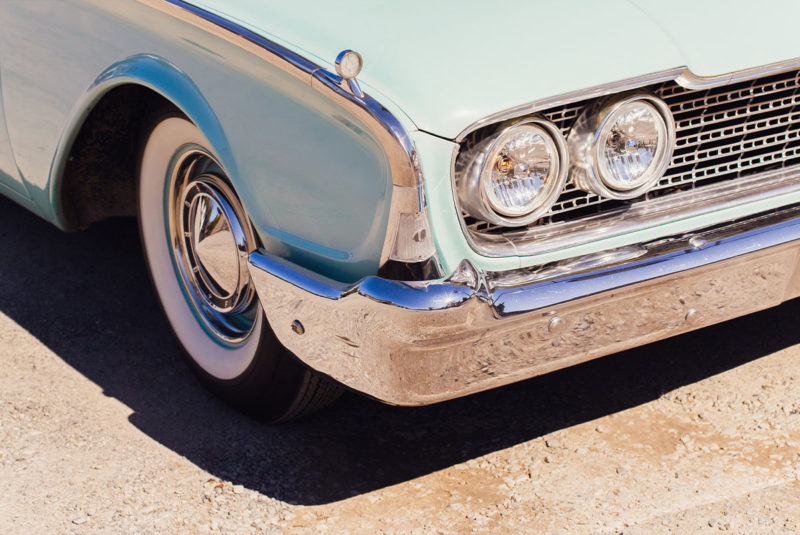Buying a used vehicle can be a great way to save money. New vehicles depreciate (lose value) fastest during their first year. Even if you buy a used car that is only a few years old, you can still save big bucks.
But not all used cars are created equal. You’ll need to compare their price, financing and maintenance costs before you get behind the wheel.
Master the used car buying process with our tips. We can teach you how to get the best used car for the best used-car deal.
Set a Firm Budget
Figure out what you can comfortably afford before you fall in love with a car. If you’re getting an auto loan, compare your monthly income to your expenses to estimate an affordable monthly car payment.
And don’t forget to account for the other costs you’ll deal with as a car owner: gas, repairs, maintenance, car insurance and your down payment.
Learn how to calculate your auto payment. Plug in the car’s price, down payment and estimated loan terms to see if the monthly payment fits your budget. And bonus: This process will also help you figure out how much you can spend on the total car price.
Aim for a used car payment that’s around 10% – 15% of your monthly take-home pay. That way, you leave room for other car-related expenses. The percentage of your income dedicated to auto expenses isn’t a hard-and-fast rule. Pick a percentage range that works best for you.
If you’re buying with cash, you can skip working out your monthly payment. Calculate how much you can afford to pay for the car. But you’ll have to worry about more than the asking price. You’ll need to account for taxes, registration and fees – so budget for extra costs.
Get Your Financing in Order
Are you buying a used car with cash? If that’s a “yes,” skip or scroll to the next section. If that’s a “no” and you need a car loan, strap in.
Our first recommendation is to shop around for the best loan terms and interest rates. Getting the best financing offer can save you hundreds of dollars while you pay off your car.
Used Car Financing Options
Getting a car loan to finance your car is a popular option. You can get a loan from online lenders, banks and credit unions. To qualify, you’ll need to meet the lender’s requirements, which vary between lenders.
Financing a car at a dealership versus applying at a bank is a convenient and quick way to get a loan. Dealerships partner with lenders and can look up multiple loans with one click. But dealers may be incentivized to finance through particular lenders, and what they show you may not always be the best deal for you.
Buying a car with a credit card may not be the best option because credit cards usually have higher interest rates than auto loans. And, spoiler alert: not all dealers take credit cards. But, if you buy an inexpensive car with a 0% intro APR (annual percentage rate) card, you will save on interest if you can pay off the card’s balance before the introductory period ends.
Some car manufacturers and dealerships have programs and special offers to deliver additional savings to specific groups of car buyers (think: college students). Ask your dealer about any offers or programs.
Get preapproved
Getting preapproved for a car loan can help you get a good loan offer. After checking your credit reports and credit scores, your lender will give you a letter with estimated loan terms and the loan amount they may offer if you apply for a loan.
Pro tip: Submit preapproval applications to multiple lenders during a 14-day window. The submissions will count as one hard credit inquiry on your credit reports.
Use your car buying budget and preapproval to establish your price range while car shopping.
Take Your Time To Find the Right Car
A car purchase is a large purchase. Take all the time you need to find the right car for you. This step can be the most time-consuming, but putting in the work can result in the most satisfying reward: saving money!
Ask yourself how you plan on using your car, how often you’ll drive it, what type of driver you are and who will be in the car with you. Figure out what’s most important to you in a used car and use websites like Kelley Blue Book and J.D. Power to compare vehicle prices and ratings.
To loosely quote Regina George, “Get in, loser. We’re going [car] shopping!” 😎🚘
Factors To Consider When Comparing Cars
Before looking at a car in person, check online listings to compare prices at different dealerships or sellers.
How you plan on using the vehicle can help you decide which kind of vehicle you should buy. Compare vehicle ratings to see which make and model are best for you.
Cars with higher mileage are usually older and cost less than cars with lower mileage. While the car with the higher mileage may be cheaper, you may spend more on repairs.
A used car is bound to show some wear and tear, but take a good look at the car’s condition. Is it worth the asking price?
Ask yourself what kind of driving you’re going to be doing (think: city, highway, short and local or road warrior) then look for cars that complement your planned use.
New cars have tons of safety features, but when you compare safety ratings, you’ll see plenty of used cars have rock-solid safety features as well.
The newer the vehicle, the higher the insurance cost and the more coverage you buy.[1] If you want to reduce insurance premiums, look for older used cars.
Shop certified preowned
Certified preowned vehicles (CPOs) are a great option. They go through a thorough inspection and certification process and come with manufacturer extended warranties. They are typically low-mileage vehicles dealers have leased or loaned out, are a few years old and have no accidents on their service record.
Just know that these perks usually add up to a higher price tag.
Other ways to find used cars
Many of us opt to buy cars from dealerships. It’s a popular option, and when you compare it to online or private sales, there is less chance of getting scammed. But dealerships aren’t the only game in town. You can use private sellers to find a great deal. You just need to be careful.
Check out different online classified sites to find used cars or take a look around your neighborhood and surrounding area. Again, beware of scammers. Make sure you get all the paperwork – like the bill of sale and the title transfer – before you hand over any money.
You can also use websites like Autolist, Autotrader, CarMax and Carvana to shop.
Do Your Due Diligence
After finding the used car you want, you still need to verify you’re getting what’s advertised. Here are some final considerations before you say “yes” and start negotiating:
- Verify pricing: Double-check the estimated value online to make sure it’s comparable to the price at the dealership.
- Verify the mileage: If you can, look at the odometer. The mileage should match what’s in the listing.
- Check vehicle history report: Check the CARFAX Report to see if the car has been in any accidents that may require more repairs down the road.
- Test drive the car: Sure, the car may look great from the outside, but how do you feel while you’re driving it?
- Get an independent inspection: Whether you’re buying from a small independent dealership or a private individual, get a mechanic with no connection to the seller to verify the vehicle’s condition. This step probably won’t be necessary if you’re buying at a large franchise dealership or buying a certified preowned car.
Negotiate
At this point, you’ve found the right car. You’ve seen it in person. You even took it out for a test drive, and nothing stood out to you as a concern. Well, guess what? It’s time to negotiate the sale.
Start by asking the seller to name their offer, which gives you a negotiation ceiling. Counteroffer with a lower – but fair – price, knowing you will likely not go any lower than your first offer.
Dealership
The price you see on the car windshield or listed online isn’t the total purchase price – it’s just the sale price. To drive away with the car, you’ll pay the out-the-door price, which includes taxes and fees on top of the sale price.
To get the best deal on a car, start by asking what the out-the-door price (aka OTD price) is and negotiate from there.
Don’t negotiate on your desired monthly payment if you’re getting a car loan. It is important to make sure your monthly payment fits your budget. But dealers can play with the numbers by extending your loan repayment period to keep you at your target monthly payment without lowering the total price of the car. You’ll pay more interest on the loan because you’re taking more time to pay it off.
Remember your preapproval letter? Use it as leverage to help you negotiate the best loan offer. Ask them if they can beat your preapproved interest rate.
Private seller
Negotiations with a private seller are much more casual than with a salesperson. However, owners, like salespeople, may still ask for more than the car is worth. Negotiating with comparable car prices you found online can help you get the best deal.
Online seller
If you’re buying a car online, you may not be able to negotiate the listed price. Check if you’re getting the best price by comparing it to other listings.
Close the Deal
Once you’ve negotiated the best deal for you and secured financing (if you’re not buying with cash), it’s time to seal the deal and sign the papers. Read and discuss all fees in the final price to confirm no extras got slipped in. And read your loan terms. Make sure you understand your repayment terms.
Pro tip: Don’t sign an incomplete contract. It will leave you vulnerable to scams. Have you heard of yo-yo financing? It’s when a dealer tentatively approves a car price and loan terms so they can send you home with a car the same day. But they call you soon after to renegotiate the loan’s terms. Your interest rate usually jumps, and your loan terms are less favorable.
If you’re buying from a private seller who still has a loan on the car, you’ll need to contact the seller’s lender to finalize the sale and legally transfer the car’s title to you.
Used but Not Used Up
Buying a used car can be more time-consuming than buying a new car, but if you’ve done your due diligence, it can save you money. And many used cars have plenty of life left in them.
If you get overwhelmed, just remember these three things before buying a used car: plan, research and negotiate.
The Short Version
- Figure out what’s most important to you in a used car and use websites like Kelley Blue Book and J.D. Power to compare vehicle prices and ratings
- To get the best deal on a car, start by asking what the out-the-door price (aka OTD price) is and negotiate from there
- If you get overwhelmed, just remember these three things before you buy a used car: plan, research and negotiate
Experian™. “Do New Cars Cost More To Insure?” Retrieved August 2022 from https://www.experian.com/blogs/ask-experian/do-new-cars-cost-more-to-insure/




